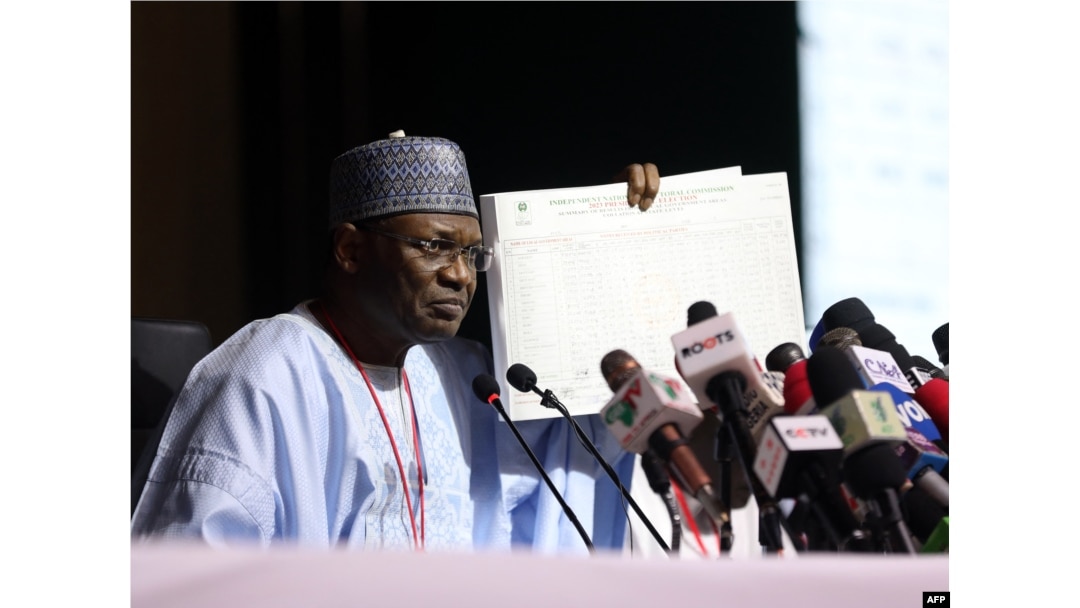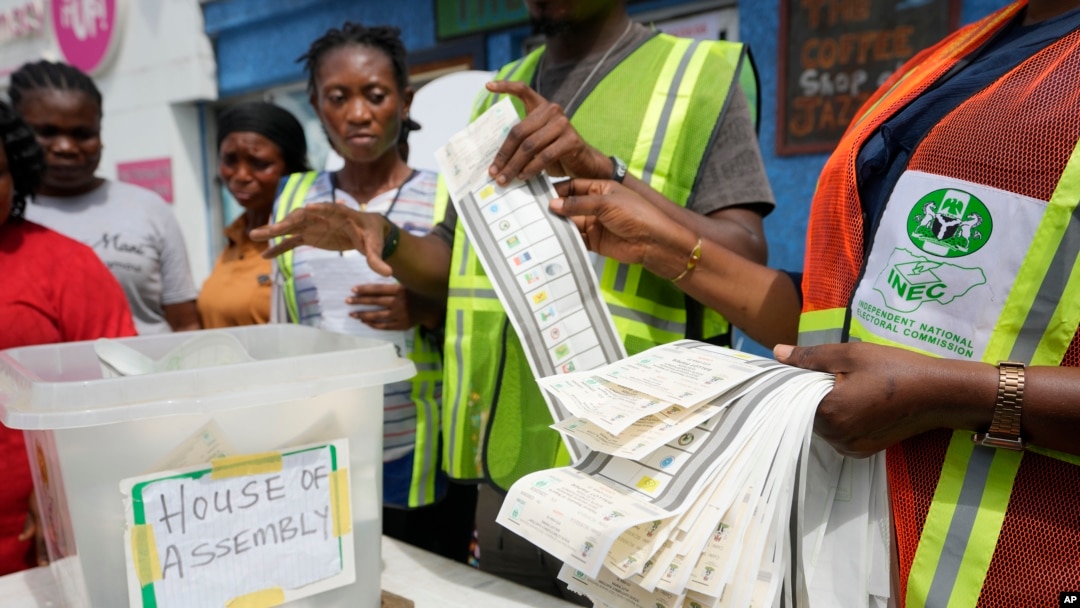Mahmood Yakubu, chair of the Independent National Electoral Commission, INEC, met with state electoral officials Tuesday in the capital. While praising INEC's successful deployment of the voter accreditation system, Yakubu said the body will evaluate its operations and the effectiveness of technologies used in the process.
Yakubu said the exercise will be carried out without bias and that INEC will make its findings public.

FILE - The chairman of Independent National Electoral Commission, Yakubu Mahmood, displays a results sheet to the media during the presentation of final results of Nigeria's general and presidential election, in Abuja, Feb. 27, 2023,
"The time has come for introspection, stocktaking, review and evaluation," Yakubu told journalists. "Since the conclusion of the elections, diverse opinions have been expressed by political parties, candidates [and] observers, and the commission welcomed all of them as far as their purpose is to improve the conduct of elections and consolidate our democracy."
Officials said INEC has received 54 reports from various observer missions regarding the way in which the election was conducted.
The review is beginning a week after the European Union observer mission published its final report on the elections, prompting some debate.
The EU said elections did not ensure the well-run, transparent, and inclusive democratic process that the electoral body had promised. It also said public confidence and trust in the INEC were severely damaged during the presidential poll and were not restored in state-level elections.
In addition, the report cited security issues, noting the political atmosphere was exceptionally tense prior to the election.
The Nigerian presidency this week rejected the EU's report.
However, Idayat Hassan, director at the Center for Democracy and Development, said the report was correct in citing an already challenging political environment even before the elections.
FILE - An electronic billboard carries a message warning the public against engaging in election violence, in Lagos, Nigeria, Feb. 23, 2023.
"INEC overpromised and they underdelivered, nobody is taking that away, [but] it should take into cognizance the prevailing factors surrounding this election," Hassan said. "For instance, this election held against the backdrop of fuel and Naira scarcities, it dampened the morale of Nigerians, it suppressed their ability to move to different parts of the country to even participate."
Hassan said INEC must carry out the review in a broader context, including previous elections, and its collaborations with security agencies and other stakeholders.
The February 25 and March presidential and subnational polls were marred by violence that left at least 21 people dead.
There also were operational difficulties and logistics issues, and observers allege that voting was suppressed in some states.
Emmanuel Njoku of the nonprofit Connected Development, one of the election observers, said the INEC lacked the expertise to conduct elections, and he faults their appointment process.
"You can review yourself, but you cannot score yourself in an examination. If the European Union has given a report, that is what they've observed, and for us at Connected Development, we align with a couple of the things that they reported. They worked closely with us. Beyond the technical glitch at the headquarters, the issue around logistics and operational failure, they [INEC] failed woefully," Njoku said.
INEC has been evaluating its performance in elections since 2011.
The commission is also reviewing evidence of infractions in more than 200 investigations concluded by the police, including cases involving high-ranking officials.
Meanwhile, an appeals court in Abuja closed the defense hearing Wednesday for lawsuits challenging Bola Tinubu's election by the opposition groups. The court will resume later this month.


